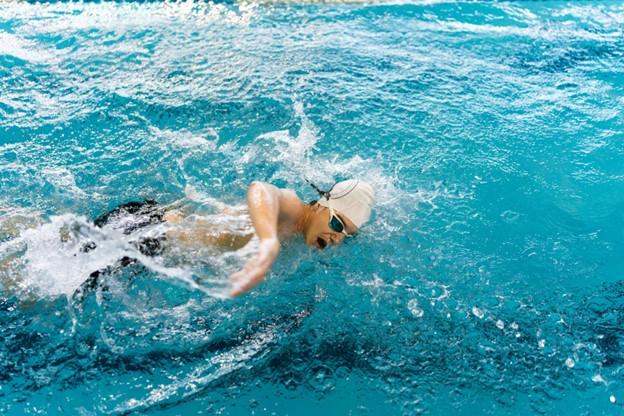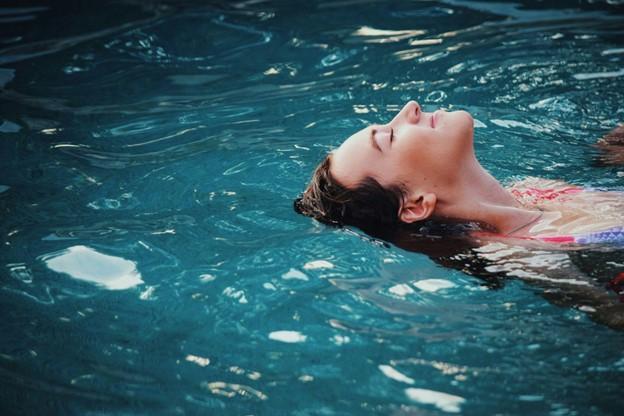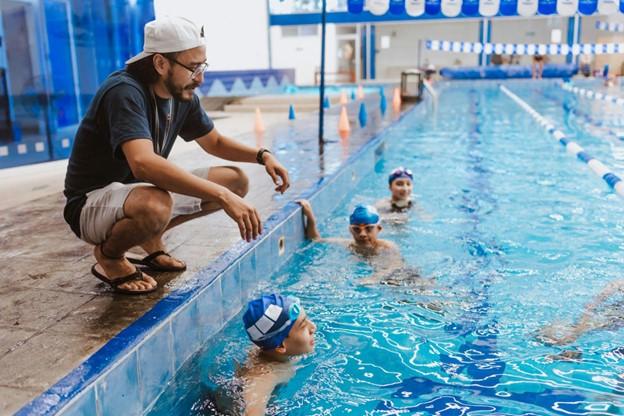






Swimming is a widely enjoyed, full-body exercise that significantly improves your cardiovascular health and strengthens muscles. In fact, it is one of the few sports that you can do from cradle to grave delivering a multitude of benefits throughout. Nevertheless, beyond its physical benefits, this aerobic exercise has several cognitive and mental health advantages. This blog discusses how swimming can boost your brain function in particular and whether you have an age limit to learn swimming. Let’s dive in:

image from https://theicebath.com.au/
Creates New Brain Cells that Improve Memory
Yes, you heard it right! Swimming helps your brain to create brain-derived neurotrophic factor (BDNF), a compound that helps repair brain cells and supports the growth of new ones. BDNF improves your brain’s neuroplasticity, which can improve your cognitive function. This includes learning and memory. To prove this, further studies have shown that kids from six to twelve years of age remembered more vocabulary words after just three minutes of swimming. Perhaps this is why we often hear that swimmers are great students!
Enhances Cognitive Function
According to research by the Griffith University of Australia, kids who learn to swim young reach cognitive milestones 10 months earlier or faster compared to the kids who don’t. The happy news is that this works on adults too! Another study found that older adults who swim have better cognitive ability compared to non-swimmers thanks to the rhythmic movements and sensory feel of the water, especially in open water swimming.The freestyle swimming’s bilateral cross-patterning movement is said to help the nerve fibres in the corpus callosum ( the part of the brain that allows communication between both sides) to develop more and thus enhance the brain’s cognitive function.
Aids in Better Mental HealthDid you know that this aerobic exercise promotes the release of a specific chemical messengers called serotonin? This particular neurotransmitter is known to reduce negative emotions like anxiety, depression and stress and improve your mood. Swimming also helps lower your cortisol levels ( aka stress hormones )by imitating the “flight” part of the fight-or-flight, lowering your hormone levels. Apart from these, swimming increases blood flow which can result in the release of endorphins, the happy hormone that acts like a natural pain reliever. Isn’t that amazing?
Allows You to Sleep Better
Regular physical activities can help regulate sleep patterns and improve sleep quality. Swimming is a full-body workout that uses muscles around the body. This will obviously tire out your entire body combined with its stress-relieving effects, making for a restful night’s sleep. The lower water temperature compared to the air temperature and the wave movement and flow, also helps to promote a more better sleep at night. This helps your body to relax, heal and get rid of wastes in the brain so that you feel fresh and high the next day.
Increases Blood Flow
What’s more? Open-water swimming increases the blood flow within the brain and increases blood circulation around the body. According to a study by Howard Carter of the University of Western Australia School of Sport Science found that swimmers showed a 14 per cent increase in blood flow within the brain and around the body compared to non-swimmers. This extra blood flow helps to remove waste products from the brain, allowing your brain to be more efficient.

Swimming is a valuable life skill that offers numerous physical and mental health benefits. From cardiovascular fitness and muscle strengthening to brain health and stress relief, the advantages of swimming are well-documented. But who exactly can learn to swim? There is a widespread notion that adults who didn’t learn how to swim when they were young will never learn to swim or that infants should not be put into swimming classes. But our experience of working with small kids and adults of all ages and abilities shows you can learn to swim at any age.
1. Toddlers
It’s never too early to introduce children to water. At Aqua Artist, we offer swimming classes for kids as young as 3 years old. At this age, we focus on water acclimatisation and safety, rather than formal swimming techniques. These sessions are designed to be fun and engaging, helping your child develop a positive relationship with water. According to the American Academy of Pediatrics, early exposure to swimming can reduce the risk of drowning and build water confidence.
2. Children
Children of all ages can benefit from swimming lessons. Learning to swim at a young age provides children with a crucial life skill that improves water safety and promotes a healthy lifestyle. Swimming classes for kids help in the development of motor skills, coordination, and overall physical fitness. It's also a social activity, often conducted in group settings, allowing children to make friends and learn teamwork.
3. Teenagers
For teenagers, swimming can be both a recreational activity and a competitive sport. Joining a swim team or taking advanced swimming classes can provide a structured way to stay active and improve fitness. You can enrol your teenager for a holiday swim program to offer a break from academic stress, providing a means to relax and rejuvenate. The discipline and dedication required for competitive swimming can instil valuable life skills such as time management, goal-setting, and perseverance.
4. Adults
Yes, it’s never too late to learn to swim. Many adults who missed out on swimming lessons as children choose to learn later in life. Adult swimming classes are tailored to address the unique challenges that come with learning to swim as an adult, such as overcoming fear and building confidence in the water. Swimming is an excellent low-impact exercise, making it ideal for adults looking to stay fit without putting undue stress on their joints. It’s also a great way for you to meet new people and participate in community activities.
5. Seniors
Swimming is particularly beneficial for seniors, providing a gentle yet effective way to stay active. The buoyancy of water reduces the strain on joints and muscles, making it an ideal exercise for those with arthritis or mobility issues. Swimming can help maintain cardiovascular health, improve flexibility, and enhance mental well-being. Joining swimming lessons can be both therapeutic and enjoyable.
This blog proves that swimming is not only a full-body workout but also a powerful exercise for your brain health. From improving cognitive function and memory to improving mood and mental health, the benefits of swimming are backed by scientific research. The unique combination of physical exertion, cardiovascular benefits, and meditative aspects makes swimming an ideal activity for boosting your brain health, despite the age. Incorporating swimming into your regular exercise routine can lead to a healthier, happier, and more cognitively vibrant life. So, dive in and start reaping the mental and physical rewards of swimming today and if you are new to swimming, fear not! Join Aqua Artist’s swimming classes today and learn right from the start from the field experts. Contact us to know more!